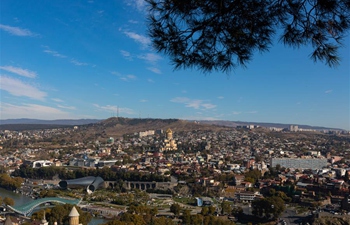HARARE, Nov. 7 (Xinhua) -- Zimbabwe's population is projected to hit 21.4 million by 2032 from 13.4 million in 2012 as the country undergoes demographic changes that could be beneficial to economic growth and development, according to a new report released on Thursday.
According to the "Updated 2012 Population Census Projections Report" produced by the Zimbabwe National Statistics Agency (ZimStat) with support of the United Nations Population Fund, the country's population is growing at an estimated annual rate of 2.35 percent, state news agency New Ziana reported.
At the current growth rate, it is estimated that it will take 29.4 years for the country's population to double.
Key to the population growth is the rise in the number of people in the productive age group of 15 to 64 years, which is expected to jump to 58.5 percent of the overall population by 2032 from 53.7 percent in 2012.
"The above population trends could be extremely beneficial to economic growth and development. When the ratio between the dependent and the working age population decreases, new economic and social opportunities arise," said the report.
The report noted that failure to take advantage of the demographic dividend could pose a threat to social stability in the country.
"If the economic and social environment are unfavorable, the economy cannot absorb the working age population, and the large population of young adults may become a load to the country and may result in social turbulence and civil unrest," said the report.
Latest data shows that the country's population is estimated to have grown to 15. 8 million in 2019 from 13.4 million in 2012, and is projected to be around 17 million when the next census is conducted in 2022.
In terms of life expectancy, it is anticipated that there would be improvement of about nine years during the 20-year period from 2012 to 2032.
Zimbabwean women are estimated to outlive men by seven years. Life expectancy for men is projected to jump from 57.82 years in 2012 to 67.12 years by 2032 while that for women will be 74.19 years, up from 65.09 seven years ago.
Over the period, the average number of children expected to be born by a woman during child bearing age, is expected to marginally decline from 4.33 in 2012 to 3.06 by 2032.













